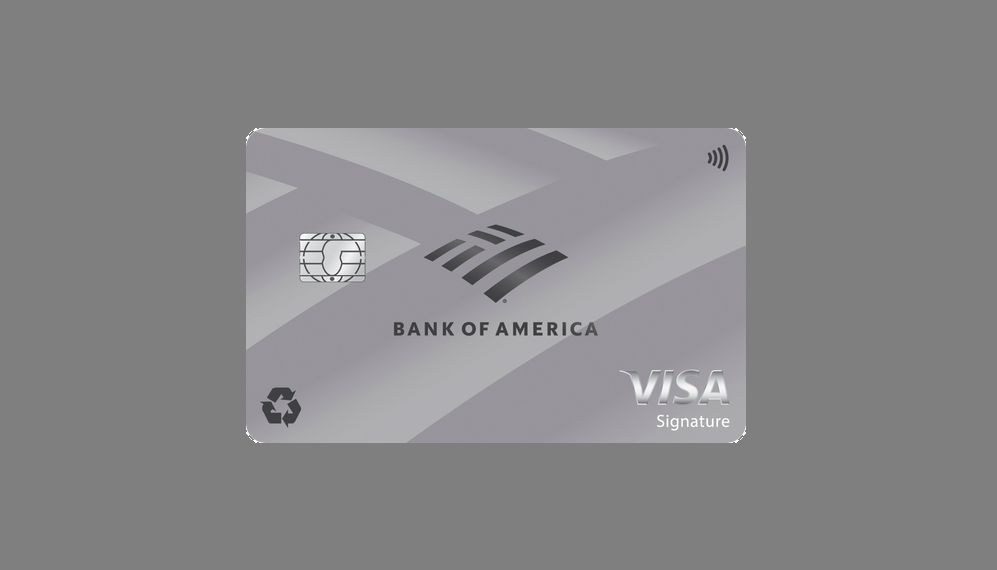How Credit Cards Can Influence Your Long-Term Financial Planning in the USA

Understanding the Impact of Credit Cards on Financial Futures
In today’s fast-paced world, managing finances effectively is more vital than ever. Credit cards can be a powerful tool in your financial arsenal, but their influence can span beyond mere purchasing power. When used responsibly, credit cards offer an opportunity to build a solid financial foundation that can lead to a secure and prosperous future.
Utilizing credit cards wisely can unlock a range of benefits, including:
- Building credit history: Establishing a strong credit score is crucial for securing loans at favorable rates. In the United States, many lenders rely heavily on credit scores when assessing loan applications for mortgages, auto loans, and personal loans. For example, a higher credit score can result in lower interest rates, ultimately saving you thousands of dollars over the life of a loan.
- Rewards and cashback: Many credit cards offer enticing reward programs that allow you to earn cashback or points on everyday expenditures such as groceries, gas, and dining out. For instance, a card might offer 2% cashback on groceries and 3% on travel, enabling savvy consumers to reap financial benefits while making purchases they would normally make anyway.
- Emergency funds: Life is unpredictable, and unexpected expenses often arise, whether it’s a medical emergency or urgent home repairs. Credit cards can serve as a safety net in these situations. Having a card with a sufficient credit limit can provide peace of mind, allowing you to manage unforeseen costs without derailing your financial stability.
However, irresponsible use can lead to significant pitfalls, such as:
- Debt accumulation: High-interest rates associated with credit cards can result in rapid debt accumulation. If the balance isn’t paid in full each month, interest charges can add up, making it easy to fall into a cycle of debt that can be challenging to escape. An example of this could be carrying a $5,000 balance on a card with a 20% interest rate, leading to over $1,000 in interest charges in just a year if payments are only the minimum amount.
- Damaged credit scores: Late payments or maximum credit utilization can severely impact your credit score. A lower score can hinder your ability to secure loans or increase your insurance rates, demonstrating just how critical it is to stay on top of payments.
- Emotional stress: The weight of financial strain can take a toll on your overall well-being. The anxiety of facing mounting debt or the fear of financial instability can impact your mental health and relationships.
Understanding the duality of credit cards allows you to harness their benefits while sidestepping their dangers. By adopting conscious spending habits—such as keeping track of your budget, utilizing automated payments, and setting credit limits for yourself—you can empower your financial journey. Remember, financial stability is a marathon, not a sprint. Embrace the process, and take deliberate steps towards a secure future.
DIVE DEEPER: Click here to enhance your income management strategies
The Positive Aspects of Credit Cards in Financial Planning
Credit cards, when used wisely, can be a significant asset in the journey toward long-term financial planning. Understanding the benefits associated with responsible credit card usage puts you in a position to leverage them to your advantage. Here are some crucial aspects to consider:
- Establishing a Strong Credit Score: One of the most significant benefits of using credit cards responsibly is the ability to build and maintain a strong credit score. A good credit score is not just a number; it opens doors to various financial opportunities. Lenders are more likely to offer you favorable loan terms, lower interest rates, and higher credit limits when they see a solid credit history. For instance, this could mean the difference of hundreds of dollars in interest payments on a mortgage, translating to savings that can be redirected into other essential areas of your financial plan.
- Gaining Financial Flexibility: A well-managed credit card can provide a level of flexibility that makes managing everyday expenses easier. With the right card, you can keep your cash flow intact while still enjoying various purchases. For example, rather than depleting your savings on unexpected car repairs, you can use your credit card and pay it off later, ensuring you retain liquidity for other financial goals.
- Taking Advantage of Reward Programs: The array of reward programs available today can significantly enhance your financial planning. Many credit cards come with cashback or travel points that could play a pivotal role in your budgeting strategy. Imagine using your rewards points for a much-deserved vacation or receiving cashback that can be allocated towards paying off debts or funding your emergency savings. These perks not only make spending more satisfying but can also contribute positively to your overall financial health.
However, it is critical to approach credit cards with caution. Many individuals fall into traps that can jeopardize their financial well-being, leading to unexpected consequences. Awareness and a robust understanding of the following potential pitfalls are essential:
- Interest Rates and Fees: Credit cards commonly carry high-interest rates. If balances are not paid in full, those interest charges can quickly add up, negatively impacting your financial bottom line. Paying attention to the annual percentage rate (APR) and other potential fees is vital to avoid unnecessary financial strain.
- Overspending Risks: The convenience of credit cards can encourage impulsive spending. It is crucial to remain disciplined and stick to a budget to prevent overspending, which can lead to debt accumulation that undermines your financial objectives.
- Neglecting Financial Awareness: It’s easy to lose sight of spending habits when using credit cards. Regularly reviewing your statements, understanding your spending patterns, and identifying areas to cut back are essential for maintaining a sound financial plan.
In conclusion, while credit cards can be a powerful tool for enhancing long-term financial planning, they require responsible management to truly be beneficial. By focusing on building credit wisely, understanding the available rewards, and exercising discipline with spending, you can navigate the complexities of credit cards and work towards achieving your broader financial goals with confidence.
DISCOVER MORE: Click here to learn how to save costs
The Risks of Mismanaging Credit Cards in Financial Planning
While credit cards offer many tools to facilitate your financial journey, mismanagement can lead to significant hardships that may derail your long-term goals. As you navigate the path of financial planning, it is crucial to recognize the potential risks associated with credit card use. Being forewarned can empower you to adopt smarter strategies that will keep your financial aspirations within reach. Here are some pivotal considerations:
- Debt Accumulation: One of the most alarming outcomes of credit card mismanagement is the accumulation of debt. Many cardholders fall into the trap of only making minimum payments, which results in a growing balance due to interest charges. This can create a vicious cycle, where the debt multiplies over time, making it increasingly difficult to break free. To mitigate this risk, consistently aim to pay off the full balance each month whenever possible. This disciplined approach fosters healthy spending habits and safeguards your financial future.
- Impact on Financial Goals: High credit card debt can take a significant toll on your ability to save for critical milestones such as buying a home, funding education, or planning for retirement. If a large portion of your income is directed towards credit card payments, it becomes challenging to contribute adequately to savings or investment accounts. Creating a budget that prioritizes debt repayment, while still allowing for savings, will help you balance these competing financial demands.
- Emotional Stress: The burden of managing credit card debt can lead to emotional strain, affecting both mental well-being and decision-making abilities. Financial stress often manifests in anxiety, impacting not only your financial planning but also your overall quality of life. Establishing a practice of regular financial check-ins, seeking support from financial advisors, or engaging with community resources can help alleviate some of this stress while guiding you toward making informed decisions.
Building a Resilient Financial Foundation
In light of these challenges, it’s crucial to build a resilient financial foundation that leverages the positive aspects of credit cards while avoiding the pitfalls. Here are some strategies to consider:
- Create a Structured Budget: Developing a comprehensive budget can be your roadmap to responsible credit card use. Allocate specific amounts for discretionary spending and determine how much you can comfortably charge to your credit card each month. By knowing your limits, you can enjoy the benefits of credit cards without the risk of overspending.
- Utilize Automatic Payments: Setting up automatic payments can ensure your bills are paid on time, helping you avoid late fees and maintaining a strong credit score. By automating payments, you remove the mental burden of managing deadlines, keeping you on track to meet your financial commitments.
- Educate Yourself Continuously: Financial literacy is key to navigating the complexities of credit card use. Take the time to read articles, attend workshops, or consult financial professionals to deepen your understanding of credit management. Knowledge is power, and by staying informed, you are better equipped to make decisions that align with your long-term financial planning.
Approaching credit card usage with intention and awareness can transform them into powerful allies in your journey toward financial independence. Embracing responsible management and cultivating healthy financial habits today lays the groundwork for a brighter financial future tomorrow.
DISCOVER MORE: Click here to learn about the value of diversification
Charting a Path to Financial Success
In conclusion, the role of credit cards in your long-term financial planning in the USA is undeniably significant. When used mindfully, they can serve as a springboard for achieving your financial aspirations, such as homeownership, education funding, and retirement. However, it is crucial to remain vigilant against the risks associated with mismanagement, such as debt accumulation and emotional stress. The key lies in harnessing the advantages of credit cards while being aware of their potential pitfalls.
By implementing a structured budget, utilizing automatic payments, and committing to ongoing financial education, you can effectively manage your credit usage. Establishing these healthy habits not only protects your credit score but also enables you to forge a more secure financial future. Remember, the journey toward financial independence is a marathon, not a sprint; it requires careful planning, discipline, and adaptability.
As you move forward, let your credit cards be a reflection of your financial values and goals. With intentionality, you can turn them into valuable tools that support your aspirations rather than hinder them. Embrace this opportunity to empower yourself, build resilience, and set the stage for lasting financial success. Your future self will thank you for the responsible choices you make today.


